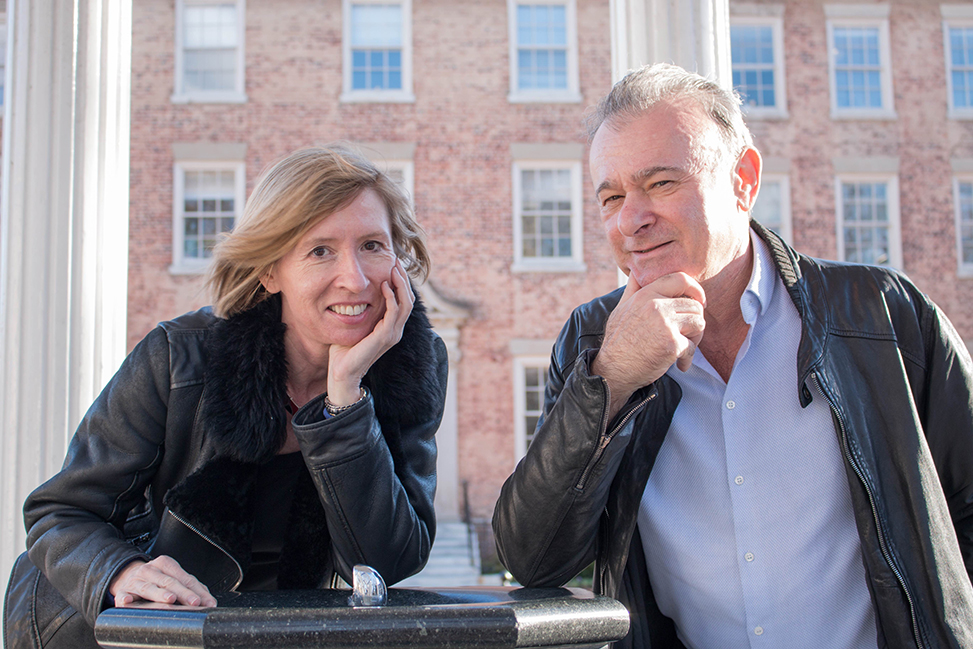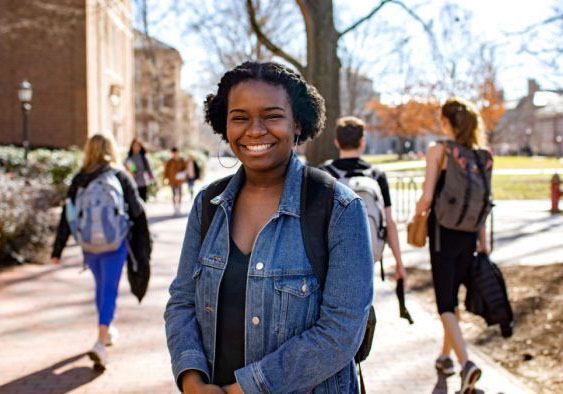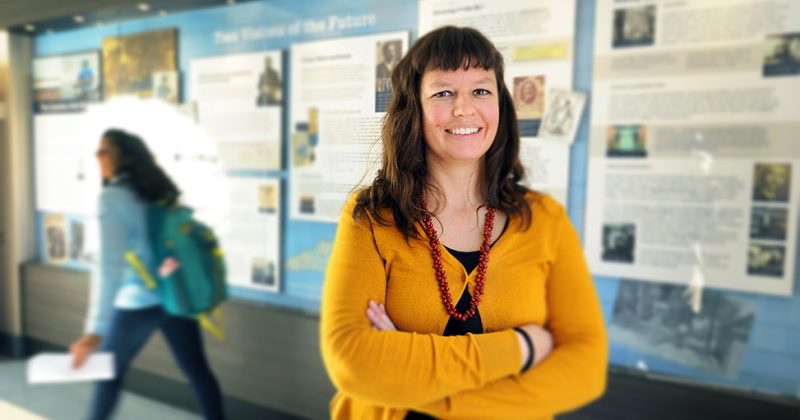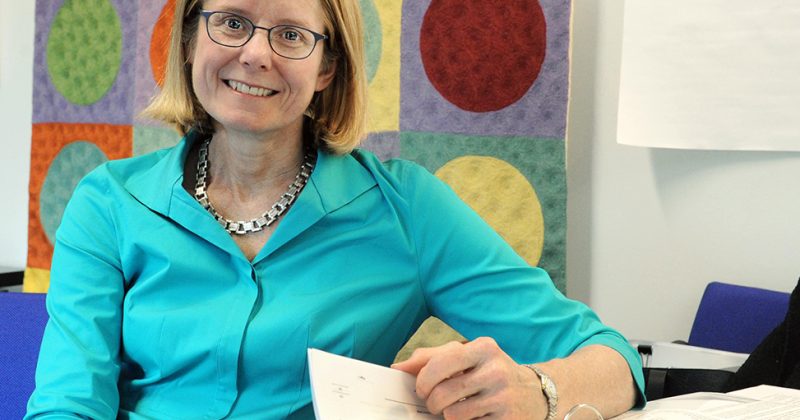
UNC faculty couple Liesbet Hooghe (left) and Gary Marks have created a bequest to provide crucial support for political science graduate students. They credit the contributions such students have made to their research. (photo by Kristen Chavez)
UNC political scientists Liesbet Hooghe and Gary Marks may be leading experts on European politics, but their greatest legacy will likely be their extensive collaborative work with graduate students.
The husband-and-wife duo have excelled in their careers with the help of an established network of current and former graduate students. Their office shelves are lined with co-authored works, and their calendars are often filled with Skype sessions, phone calls and meetings with the students and scholars in that network.
It’s no surprise, then, that when Hooghe and Marks created a bequest for the College, they chose to create the Gary Marks and Liesbet Hooghe Graduate Student Excellence Fund in Political Science. The fund will allow the department to provide crucial support to political science graduate students.
Both Hooghe and Marks understand the importance of graduate students to a department’s success and the challenges the students face.
“Over the years, having worked with a number of graduate students, it’s become more and more clear that the neediest group for additional funding are graduate students,” said Hooghe, who joined the faculty in 2000 and is the W.R. Kenan Distinguished Professor of Political Science. “This is a research university, so we care a lot about giving our potential colleagues the best cards possible to make it in a pretty tough academic or professional world.”
Marks’ affinity for graduate students can be traced back to his experience as a graduate student at Stanford University. His adviser was Seymour Martin Lipset, a noted American sociologist and political scientist, with whom he co-authored a book.
“The experience of being a graduate student and having a close and very creative, fruitful experience with my dissertation adviser really shaped my life, and I learned so much from him — not only intellectually but also how to go about doing research,” said Marks, who has been at Carolina since 1986. He is currently the Burton Craige Distinguished Professor of Political Science.
Hooghe and Marks have seen the benefits of graduate funding firsthand, in their own work. In 2010, they received a multiyear grant from the European Research Council that enabled them to provide funding to a number of graduate students.
“We found that this opened up opportunities for these students that otherwise wouldn’t have been there,” Hooghe said. “It can be career-changing if they can have an extra semester off to focus on research or do fieldwork, to learn an extra language, to learn a method that puts them somewhere higher up in the academic world.”
Sara Niedzwiecki (Ph.D. ’14) started working with Marks and Hooghe in 2009 and co-authored a book and two articles with them. Grant funding enabled Niedzwiecki to conduct field research across Argentina and Brazil for 15 months. She says their mentorship was crucial in shaping her dissertation and strengthening her job prospects.
“Liesbet and Gary showed me by example how academia could be a collaborative environment where young scholars can thrive,” said Niedzwiecki, now an assistant professor at the University of California, Santa Cruz.
Jelle Koedam, a political science graduate student, has worked as a research assistant for Marks and Hooghe the past five years.
“They go out of their way to support their students, including after graduate school,” Koedam said. “It is truly amazing to see how they stay in touch with so many of their former students, collaborating on projects and inviting them to panels or conferences they are organizing.”
Both Hooghe and Marks credit the contributions that graduate students have made to their research.
“The quality of our own research depends on the quality of graduate students,” Marks said. “We learn from them. Our field is pretty technical, and they often come with new ideas and methods that can be really useful in getting in top publications.”
Ultimately, Hooghe and Marks enjoy being there for their students.
“Advising students is not just an intellectual exercise,” Marks said. “You’ve got to support them, and we find pleasure in that.”
By Joanna Cardwell (M.A. ’06)
Published in the Spring 2019 issue | The Scoop
Read More

Two gifts boost Chancellor’s Science Scholars program
Keshav Patel ’19 is finishing an honors thesis in mathematics….



